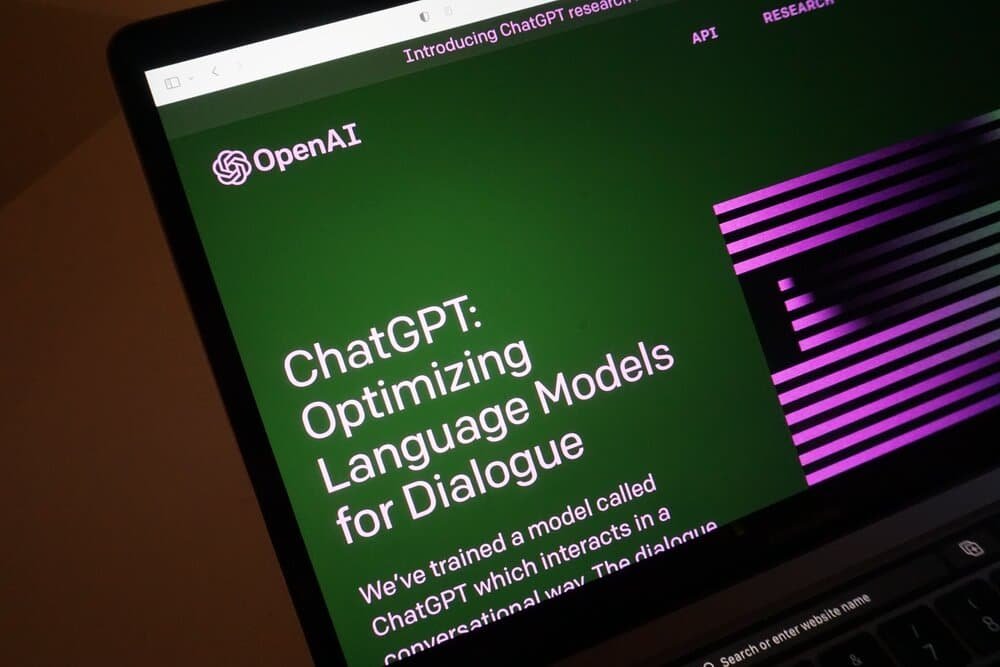
AI Tools for Science Teachers
-

Consensus: AI Research & Exploration
Consensus is a search engine that uses artificial intelligence to find insights in research papers.
——
Features: Consensus utilizes advanced natural language processing and machine learning algorithms to analyze and evaluate the content of scientific articles and studies.
Consensus utilizes advanced AI algorithms to analyze and evaluate the content of scientific articles and studies. summarizing complex scientific literature and providing consensus-driven insights.
Teachers can use Consensus to access the latest research in their subject areas, ensuring that their curriculum is up-to-date with current scientific evidence. Teachers can also introduce research findings from Consensus into classroom discussions, encouraging students to analyze, debate, and critique the evidence.
Students can use Consensus to find supporting evidence for scientific ideas. For example, they can ask about the relationship between concepts and the effects of a concept. They can explore, analyze, and possibly debate the factual basis of controversial scientific theories as outlined in research. All results are tied to actual studies, providing students with credible sources for their research.
—-
Price: Free up to 20 credit. Premium account is $6.99/month, but there is a student discount.
—-
Tom’s Take: Intuitive and powerful, Consensus is a terrific tool for science educators seeking to foster scientific discourse and critical thinking skills.
Bolstered by staff and advisors with strong STEM backgrounds, Consensus shines in its ability to facilitate evidence-based scientific discussions and promote real-world problem-solving and scientific literacy.
-

Wolfram Alpha: AI Tutoring & Problem Solving
Wolfram Alpha is an AI-driven computational knowledge engine that offers data analysis, answers factual questions, and resolves mathematical issues.
——
Features: Wolfram Alpha provides over 50,000 types of algorithms and equations. For teachers and students of physics, chemistry, and other sciences, it is an invaluable aide.
Wolfram Alfa performs a wide range of statistical operations and can analyze and generate reports, ranging from basic calculations to complex calculus. Students of the science stream and other areas that require maths can use this tool to better understand statistical information. For instance, Wolfram|Alpha can provide step-by-step explanations to a wide range of physics problems and it can also balance chemical equations.
——
Price: Wolfram Alfa is free to use with paid options available.
——
Tom’s Take: Wolfram Alpha is a dynamic resource for science educators seeking to enhance their instruction with dynamic visualizations, real-world applications, and interactive explorations of scientific concepts.
For teachers and students of physics and chemistry in particular, it is an invaluable aid with its vast database of scientific information, including physical constants, chemical properties, and data on a wide range of materials and substances. Its ability to provide data-driven answers and detailed explanations makes it an excellent tool for supporting scientific calculations and literacy.
-

ChatGPT 5.1: (General) Advanced AI Model
ChatGPT 5.1 is a state-of-the-art AI model from OpenAI and a valuable tool for both teachers and students in the teaching and learning of science.
——
Features: ChatGPT (using the GPT-5.1 Thinking model) can break down complex science concepts into smaller, understandable steps, show its reasoning in a clear, structured way, and re-explain ideas using different representations (verbal explanations, diagrams, simple models, graphs, and everyday analogies). It supports work across middle and secondary science—covering topics in Biology, Chemistry, Physics, Earth and Space Science, and introductory Environmental Science—as well as data analysis, experimental design, and interpretation of graphs and simulations.
ChatGPT can also generate question sets at different levels of difficulty and propose variants of the same investigation or scenario for practice, review, or extension. Additionally, it can create descriptions of experimental setups, processes, and phenomena that teachers and students can quickly turn into diagrams, lab sketches, or dynamic digital models.
For students, ChatGPT can function as a conversational science tutor that gives immediate feedback, asks probing questions, and encourages step-by-step reasoning. Importantly, version 5.1 is integrated into ChatGPT’s Study Mode, which prompts students to reason through scientific problems and explanations rather than simply receiving final answers.
——
Price: GPT-5.1 is available for free, but limited to about 10 messages every 5 hours. ChatGPT Plus includes GPT-5.1 and higher usage limits. GPT-5.1 is also available to ChatGPT Edu clients.
——
Tom’s Take: ChatGPT is incredibly versatile and an excellent tool for science teachers who value personalized instruction and interactive learning. ChatGPT can provide step-by-step explanations of complex scientific processes, generate real-world examples to illustrate abstract concepts or create custom problem sets tailored to individual student needs. Students can receive immediate feedback, clarify misconceptions, and deepen their understanding of scientific principles.
-

MagicSchoolAI: AI Teaching Assistant
MagicSchool.ai is a robust AI-driven teaching assistant packed with features that greatly assist teachers in crafting lesson plans, activities, and assessments aligned with curriculum standards.
——
Features: While not a science-specific platform, MagicSchool has plenty of science-education features. For instance, the Science Lab Generator is a special MagicSchool.ai offering. By inputting specific criteria, the tool provides a structured lab plan, which can then be adjusted based on classroom needs.
Other tools, like the Three Dimensional Science Assessment Generator and the 5E Model Science Lesson Plan Generator, offer varied methods for lesson planning and student assessment.
Moreover, there is a Table Analysis Generator that leverages AI to generate a table with data of your choice with associated questions that students can analyze in an assignment.
——
Price: MagicSchool.ai offers limited free features, including lesson planning, lesson planning, differentiation, writing feedback and more. For unlimited usage and plus features the cost is $8.33/month.
——
Tom’s Take: MagicSchool is a robust platform for streamlining science lesson planning and content creation.
Its lesson planning tools are outstanding, featuring a vast selection of well-planned and well-organized resources to cater to a range of teaching needs and reach a diverse range of students. MagicSchool also offers more specialized tools for Science than its competitors.
-

Eduaide: AI Teaching Assistant
Eduaide is another powerful AI-driven teaching assistant full of handy resources.
——
Features: Eduaide offers specialized resources for science teachers, including the Lab + Materials tool, which recommends materials and procedures to foster hands-on scientific inquiry.
In addition, the Eduaide STEM Project tool is designed for crafting STEM activities, complete with critical thinking questions and a breakdown of STEM principles. You’ll find the Lab + Material tool and the STEM in the Cooperative Learning section.
With Eduaide’s Content Generator, you can uncover Science resources for primary, secondary and postsecondary science classrooms. Science teachers may also want to leverage the Project Based Learning tool, found in the Cooperative Learning section.
——
Price: Up to 15 free generations a month. For unlimited access to all tools and resources you’ll pay $5.99/month.
——
Tom’s Take: Eduaide is ideal for science teachers who value flexibility and customization in their lesson planning.
It goes beyond lesson planning to help teachers create personalized learning environments for students, and it does so through flexible and modular content.
-

Labster: Virtual Labs & Simulations
Labster offers students a hands-on experience in virtual science labs without the need for physical resources. AI-driven simulations adapt to each student's actions, providing real-time feedback and guidance.
——
Features: Labster offers a comprehensive suite of virtual lab simulations designed to enhance science education. Labster over 300+ simulations covering a wide variety of science topics from traditional subjects through to more specialized sciences including STEM, microbiology and chemical sciences.
These simulations cover various fields such as biology, chemistry, physics, and engineering, providing an immersive, hands-on learning experience.
Labster's platform includes 3D animations, interactive quizzes, and gamified elements to engage students and reinforce learning. Teachers can track student progress and performance through detailed analytics.
Additionally, Labster integrates with popular LMS platforms, making it easy to incorporate into existing curricula. This makes Labster an invaluable tool for fostering practical skills and scientific literacy.
——
Price: Labster doesn’t offer prices on its website, so you have to contact them. Expect to be quoted based on the size of your department or institution.
——
Tom’s Take: Labster is a great option, especially when lab equipment is expensive or even dangerous to operate. And Labster’s game-like ambience is intuitive and engaging for kids.
Work With Tom: Onsite & Online
-

Keynote Presentations
One-hour keynote presentation on AI in education — onsite or online — designed for larger groups, such as school faculty and administrators or college instructors.
-

Keynote + Sessions
One-hour featured keynote presentation on AI in education designed for larger groups, plus additional smaller-group sessions — onsite or online
-

Small Group Sessions
Online or hybrid programs designed for small groups, such as department-level teachers, grade-level teachers, and school edtech specialists.
The AI Paradox in Science Education
How Can Educators Bridge the Gap Between Scientific Innovation and Classroom Practice?
-Tom Daccord
.
-

Khanmigo: AI Tutoring & Problem Solving
Khanmigo, a product of Khan Academy, is an intelligent tutoring system designed to offer students personalized tutoring. It engages with students either through voice or text.
——
Features: Khanmigo is capable of understanding student queries and requirements, thus supplying learners with relevant content and exercises, and offering feedback and motivation. As, it can be a valuable assistant to students working through problems related to physics, chemistry, biology.
Khanmigo’s standout feature is its ability to guide students through the sequential steps or thought processes needed to solve a problem, rather than simply providing the answer. It encourages students to engage with the problem and reflect on their thinking.
In addition to assisting students, Khanmigo also aids teachers in lesson planning by providing AI-guided strategies and offers insightful feedback on student performance.
——
Price: Khanmigo is free for U.S. teachers. Contact Khanmigo to get a quote for your institution.
——
Tom’s Take: Khanmigo is an ideal tool for science educators seeking to provide personalized, adaptive tutoring to their students. Its ability to guide learners through the scientific inquiry process and provide immediate feedback makes it a valuable resource for fostering scientific proficiency and supporting student success. In addition, with a school subscription, teachers can view student progress in real time, a tremendous benefit.
-

Sizzle: AI Tutoring & Problem Solving
Sizzle is an AI-driven learning app created by Jerome Pesenti, the former VP of AI at Meta. It offers a tailored approach to solving equations and word problems.
——
Features: Sizzle guides students through each step of a problem as a tutor chatbot. Sizzle's problem-solving capabilities extends to subjects such as physics, chemistry, and biology, accommodating learners of all levels.
Sizzle assists users in correctly solving a problem. The "Try a Different Approach" feature allows users to propose alternative methods for solving problems. The "Give Me Choices" option presents multiple answers, while the "Answer with a Photo" feature allows for image uploads.
If you're stuck, you can ask Sizzle for a definition. Even if your handwriting is poor, Sizzle can decipher it.
——
Price: The Sizzle app is free.
——
Tom’s Take: Sizzle is an excellent tool for personalized tutoring experiences for students, particularly in situations where physical labs are not feasible or accessible. But it can be a little too easy to prompt for the answer without going through all the critical steps to solve the problem. That said, its adaptive learning capabilities make it a valuable resource for problem-solving and conceptual understanding.
In addition, it’s free, while Khanmigo charges a lot to equip students with their app.
It holds a rating of 4.8 out of 5 on the App Store, signaling widespread user satisfaction.
-

Squirrel AI: AI Tutoring & Problem Solving
Squirrel Ai Learning is a Chinese K12 edtech company specializing in intelligent adaptive education. It provides a personalized learning plan and one-on-one tutoring in Chemistry and Physics (as well as Math and English).
——
Price: Contact Squirrel AI for institution pricing.
——
Features: Squirrel AI uses generative AI to customize lessons and practice problems based on each student’s unique learning profile.
It breaks down a subject into the smallest possible conceptual pieces. In the context of Chemistry, this can mean breaking down the subject into its fundamental concepts such as atomic structure, chemical bonding, reaction mechanisms, thermodynamics, and more.
Each of these concepts could be further broken down into smaller sub-concepts.
——
Tom’s Take: Squirrel AI is a giant in the international edtech industry and has research agreements with well-regarded institutions such as Carnegie Mellon University and UC-Berkeley etc.
-

Perplexity: General AI Tool
Perplexity is a research-oriented AI chatbot with an easy-to-use interface.
——
Features: Perplexity provides quick access to information, and its sources range from academic research papers and news outlets to Reddit threads. Every Perplexity output answer is accompanied by cited sources that users can click to learn more.
Teachers can use Perplexity to guide inquiry-based science lessons, spark classroom debates, or model how to track down credible data. Whether clarifying the greenhouse effect, exploring CRISPR, or comparing vaccine efficacy, Perplexity helps make scientific inquiry more accessible, current, and verifiable.
——
Price: Basic use is free and includes unlimited “quick searches”. The Pro service costs $20 a month, and users can choose between GPT-4o, Claude-3, Sonar Large (LLaMa 3), and other large language models.
——
Tom’s Take: Perplexity is a particularly valuable tool for research tasks. Resources are current, sources are cited, and the suggested prompts are a great vehicle for deep dives into a topic.
-

Syntelly: Chemistry
Syntelly is an Artificial Intelligence platform designed for the exploration of chemical space.
——
Features: Syntelly provides predictive models for the biological, physicochemical, and toxicological properties of organic compounds. Syntelly also offers tools for reaction predictions and visualization of chemical space.
——
Price: Contact for institution pricing.
——
Tom’s Take: There are many valuable ways that students can use the Syntelly database search feature.
For example, they can explore and compare different molecules and get quick access to information about their properties. In addition, the reactions tool allows students to predict the outcomes of a chemical reaction and analyze the set of possible reactions to synthesize a required molecule.
The SynMap feature lets students explore the chemistry space using deep learning models, analyze clusters of bioactive compounds, and generate new compounds with specified properties. Additionally, students can use the property prediction block for organic molecules that are not in the database.
-

Zygote Body: Biology
Zygote Body is an online 3D anatomy atlas that offers a comprehensive and interactive 3D model of the human body.
——
Features: Zygote Body enables users to examine, isolate, and study various structures of human anatomy.
Zygote Body uses sophisticated computer graphics techniques to create and manipulate complex 3D models that are closely associated with AI.
——
Price: The Lite plan is free. The Premium plan is $4/months and includes additional resources than simply the anatomies.
—
Tom’s Take: Zygote body can be extremely beneficial for students studying the systems of the human body, because it offers a visual and interactive method to investigate and comprehend the intricate structures and systems within the human body. By interacting with the 3D models, students can achieve a more profound understanding of the spatial relationships among different body parts, which can be challenging to understand from static 2D images or textual descriptions alone.
-

Mapify: Visualization Tool
Mapify, formerly ChatMind, is an innovative AI-powered mind mapping tool designed to streamline and enhance your brainstorming and project management experience.
——
Features: With a single click, science educators and students can transform questions, concepts, or texts—such as lab articles, textbook content, or scientific phenomena—into dynamic visual mind maps. These maps help organize information hierarchically, making it easier to understand systems like ecosystems, the water cycle, or atomic structure.
——
Price: One free credit a month. Basic account is $5.99/month.
——
Tom’s Take: Mapify supports context rewriting and dialogue expansion, helping students explore scientific ideas in depth and from multiple angles. It offers tools for framework sorting, note-taking, lab report planning, project timelines, and scientific brainstorming—ideal for group investigations or science fair planning.
Moreover, the bookmarking feature allows students to save important URLs for later reference, facilitating efficient study and research.
-

IPCC Climate Science Helper: Environmental Science
The IPCC Climate Science Helper is a chatbot that helps users understand the science behind climate change.
——
Features: The IPCC Climate Science Helper is designed to answer questions about climate change and provide users with accurate information on the topic. More specifically, the IPCC Climate Science Helperuses OpenAI’s GPT (Generative Pre-Trained Transformer) architecture and draws its knowledge from the IPCC (Intergovernmental Panel on Climate Change). Predefined topics include include the primary causes of climate change and sea level rise, among others.
it’s built on OpenAI's GPT-4 architecture. The chatbot is available on the OpenAI website and can be accessed by anyone who wants to learn more about climate change.
——
Price: Free
——
Tom’s Take: The IPCC Climate Science Helper is a helpful resource for teachers and students who want to learn more about climate change. The chatbot is friendly and can answer a wide range of questions — as long as you don’t stray from the topic of climate change. The IPCC Climate Science Helper is easy to use and can be accessed from anywhere with an internet connection. But it is powered by GPT-3, not GPT-4, so the chatbot is less accurate and up-to-date than it could be.
-

Huberman Lab GPT : Biology
The Huberman Lab GPT is a conversational AI chatbot that mimics the approach of Dr. Andrew Huberman in discussing neuroscience and health.
——
Features: The Huberman Lab GPT is built on Open AI’s GPT-4 architecture and is pre-trained on large amounts of text data. It functions as a conversational chatbot and offers an interactive and engaging way to learn about neuroscience and health.
The Huberman Lab GPT is available only to ChatGPT Plus subscribers, but the advantage is that it runs off GPT-4 and not the less-advanced GPT-3.
——
Price: Free if already ChatGPT Plus member, $20/month if not.
——
Tom’s Take: The Huberman Lab GPT is a an engaging and interactive way for teachers and students who want to learn more about neuroscience and health.. The chatbot is friendly and can answer a wide range of questions — as long as you don’t stray from the topic of neuroscience and health. The is easy to use and can be accessed from anywhere with an internet connection.
-

PhysicsGPT: Physics
PhysicsGPT is a versatile AI model designed specifically for physics education.
——
Features: PhysicsGPT focuses on providing detailed explanations, solving complex physics problems, and generating illustrative examples.
PhysicsGPT can assist students in understanding fundamental concepts such as Newtonian mechanics, electromagnetism, quantum mechanics, and thermodynamics.
It can simulate real-world scenarios and provide step-by-step problem-solving guidance, makes it an invaluable tool for both teachers and students.
——
Price: Free for ChatGPT users.
——
Tom’s Take: PhysicsGPT can answer a wide range of physics questions and can explain complex principles in simple terms.
It is rated 4.5 out of 5 based on 5000 conversations.
-

Google Lens (Socratic): AI Tutoring & Problem Solving
Socratic by Google was an AI-powered educational app designed to assist students and teachers whose core functionalities have been integrated into Google Lens as of October 2024
——
Features: By simply taking a photo of their homework problem, students receive detailed explanations, step-by-step solutions, and relevant resources to help them understand the underlying concepts. Futhermore, students can use their voice to ask for help on anything.
The app covers a wide range of subjects, including mathematics, science, literature, and more. Additionally, Google Lens provides visual explanations and links to video tutorials to enhance understanding.
——
Price: Free. Install the Socratic app on iOS or Android.
——
Tom’s Take: Google Lens provides clear explanations bound to help struggling students.It strikes me as especially beneficial for high school students who need immediate and reliable help with their assignments.
Judging by commentaries, users found Socratic helpful and valuable and teachers describe finding “new ways” to teach students as a result. It is rated 4.9 out of 5 in the App Store based on 500,000 users. Google Lens should continue that path.
-

Chemistry Chem GPT: Chemistry
Built by a biomechanical engineering student in Canada, Chemistry Chem GPT offers a comprehensive, interactive approach to learning and teaching chemistry.
——
Features: Chemistry Chem GPT covers a wide range of topics in chemistry, from basic concepts to advanced theories, provides detailed explanations and step-by-step solutions to complex problems, and its specialized tools and resources provide a deeper and more engaging understanding of chemistry compared to general-purpose models like ChatGPT.
——
Price: Free to ChatGPT users.
—
Tom’s Take: Chemistry Chem GPT is well organized, offering three chemistry modes: Inorganic Chemistry, Organic Chemistry, and Physical Chemistry. Its descriptions and explanations are clear, detailed, and quick. Chemistry Chem GPT is rated 4.3 out of 5 based on over 50,000 conversations.
More Tech Tools for Science Teachers
-

BioInteractive
BioInteractive is a high-quality educational resource that brings biological research to life. It is best suited for high school biology, AP biology, and IB biology classes.
Features: Teachers can use Biointeractive to develop three-dimensional units centered on authentic scientific phenomena as required by the Next Generation of Science Standards. BioInteractive does some of the work for you by pulling together legitimate scientific data to help with creating assessments and units. It also offers interactive videos with embedded quiz modules that require students to pause and reflect on what they're watching.
One of the standout features of BioInteractive is its vast collection of interactive materials and activities that highlight actual research. However, pulling together so many resources into a coherent learning sequence can be overwhelming. Despite this, the platform offers superb multimedia tools and lesson plans that help kids explore biology through real-world examples. Overall, BioInteractive is a comprehensive platform for biology education, offering a variety of tools to enhance productivity and efficiency in academic research.
Price: Free
-

Learn.Genetics
Learn.Genetics is a popular science website that has been providing free and engaging, multimedia educational materials for over 20 years.
Features: Learn.Genetics covers a wide range of topics, including basic genetics, genetic science, cell biology, ecology, evolution, human health, neuroscience, and science tools. It offers interactive features such as virtual labs and mathematical models, and it also provides detailed information on various genetic disorders.
One of the key features of Learn.Genetics is its interactive modules. For example, users can try their hand at organizing a profile of human chromosomes or walk through protein synthesis with an animated example. The website also provides in-depth information on a variety of topics, from the basics of DNA and genes to the roles of RNA in transcription and translation. This makes Learn.Genetics an invaluable resource for anyone interested in learning more about genetics and related fields.
Price: Free
-

PhET Visual Simulations
Founded in 2002 by Nobel Laureate Carl Wieman, PhET Interactive Simulations is a project at the University of Colorado Boulder that provides free interactive math and science simulations.
Features: PhET simulations are designed to engage students through an intuitive, game-like environment where they learn through exploration and discovery.
The simulations are developed using several design principles, including encouraging scientific inquiry, providing interactivity, making the invisible visible, showing visual mental models, including multiple representations (e.g., object motion, graphs, numbers, etc.), and using real-world connections.
PhET is a digital space that holds more than 150 online-based science and math simulations. These simulations are interactive so students can participate as they might in a real-world experiment. Each simulation is backed by a host of helpful resource materials for students and teachers, as well as additional activities. The teaching resources that accompany each simulation do require an account, so teachers will need to sign up to get the most out of the platform. PhET simulations are flexible and can be used with many different educational contexts and styles. They are based on research into how students learn in general, student understanding of specific science concepts, and user interface design.
Price: Free
AI Tools for Science Research
-

Lumina Chat: Research Assistant
Lumina-Chat is an AI research assistant that efficiently sifts through over 300,000 journal articles to provide cited answers. I
Features: Lumina Chat organizes research materials with dedicated bots and enhances learning with LLM models. This tool is designed to save time and improve research quality by providing access to a vast repository of information for accurate and cited answers.
The platform features an AI-Powered Research Suite that executes research tasks with the help of advanced AI. It also includes dedicated bots for collections, which help organize and manage your research material effectively. Lumina-Chat is particularly useful for science research and learning as it provides a comprehensive and efficient way to access, analyze, and manage large amounts of scientific literature.
Price: Free
-

HeyScience: AI Assistant
HeyScience is a personal AI assistant that provides data-driven confidence to empower your research.
Features: HeyScience offers an Intelligent Review feature that navigates the complexities of journal submissions, equipping you with insightful analytics and assured quality.
The platform also offers a variety of products such as the Trend Detector, Topic Explorer, Scientist Spotlight, and Deep-Digest. These tools help you follow concepts and ideas, maintain awareness of research trends, conduct literature research, stay current with researchers in your field, and read simplified summaries of scientific articles.
Overall, HeyScience appears to be a comprehensive platform for researchers, offering a variety of tools to enhance productivity and efficiency in academic research.
Price: Free
-

BioAutoMATED: Biology Models
BioAutoMATED is an automated machine-learning system that can select and build an appropriate model for a given dataset and even take care of the laborious task of data preprocessing.
Features: BioAutoMATED is specifically designed for biology research, and it aims to democratize artificial intelligence for research labs. The project is led by Jim Collins, the Termeer Professor of Medical Engineering and Science in the Department of Biological Engineering at MIT.
BioAutoMATED aims to solve a pressing problem: it would take many weeks of effort to figure out the appropriate model for a given dataset, which is a really prohibitive step for many people who want to use machine learning for biology.
The open-source code is publicly available, and researchers emphasize that it is easy to run.
Price: Free
-

SciSpace CoPilot: Personal Research Assistant
SciSpace CoPilot is an AI-powered personal research assistant designed to enhance your scientific literature reading experience.
Features: SciSpace CoPilot is available as a Chrome extension, and allows you to ask questions directly within the text you’re reading and receive immediate answers.
It can explain complex paragraphs, scientific formulas, mathematical equations, and tables, all in real-time. Simply highlight the text you need help with, and the CoPilot will provide a clear explanation. It supports 13 languages, allowing you to receive explanations in your native language. Additionally, it offers a bookmarking feature, enabling you to save URLs for later reference.
Price: Free
-

Elicit: Simplify Research
Elicit AI is an advanced research assistant that leverages Large Language Models (LLMs) to automate research workflows. It is designed to help users navigate and understand relevant research articles in-depth.
Features: Elicit AI can find pertinent papers without relying on exact keyword matches and extract key information from these papers to answer user’s questions. It also synthesizes evidence and arguments, designs research plans, and evaluates interventions. One standout feature is how Elicit helps you extract intricate details and organize them into a clear table, simplifying the analysis.
Science students can also greatly benefit from Elicit AI. The tool can assist in finding and analyzing relevant scientific research papers, saving students valuable time and effort. It can extract key information from these papers, helping students understand complex scientific concepts, theories, and processes. The tool’s ability to synthesize evidence and arguments can also aid students in writing research papers or reports. Furthermore, Elicit AI’s research plan design feature can help students plan and conduct scientific experiments or studies.
Price: Try for free and receive 5,000 credits. Basic account is $10/month
-
Continue and Scroll Down
For resources, newsletter, and more…
Tom’s Suggested Resources
AI is transforming how science is done. Science education must reflect this change. - Science
AI education and AI in education - U.S. National Science Foundation
Deepening Science Teaching and Learning with Language AI - Berkely School of Education
How we can use AI to increase access and equity in science education - Fordham Institute
Examining Science Education in ChatGPT: An Exploratory Study of Generative Artificial Intelligence - ERIC
Acceptance of artificial intelligence in teaching science: Science teachers' perspective - ScienceDirect
Using AI and ChatGPT in the science classroom - Science Connections
How to use AI for Science and Maths: A guide for Students - Samuel Louis
Artificial Intelligence in Science Education (2013–2023): Research Trends in Ten Years - Research Gate
Artificial Intelligence Generative Tools and Conceptual Knowledge in Problem Solving in Chemistry - MDPI
AI for Science - U.S. Department of Energy
AI Lesson Plan Generators: Considerations & Recommendations - Tom Daccord
A Teacher’s Guide to AI Prompts - Tom Daccord
How to Teach With AI: A Teacher’s Guide to Grading Student Work With AI - Tom Daccord
Artificial intelligence is already changing how teachers teach - Washington Post





